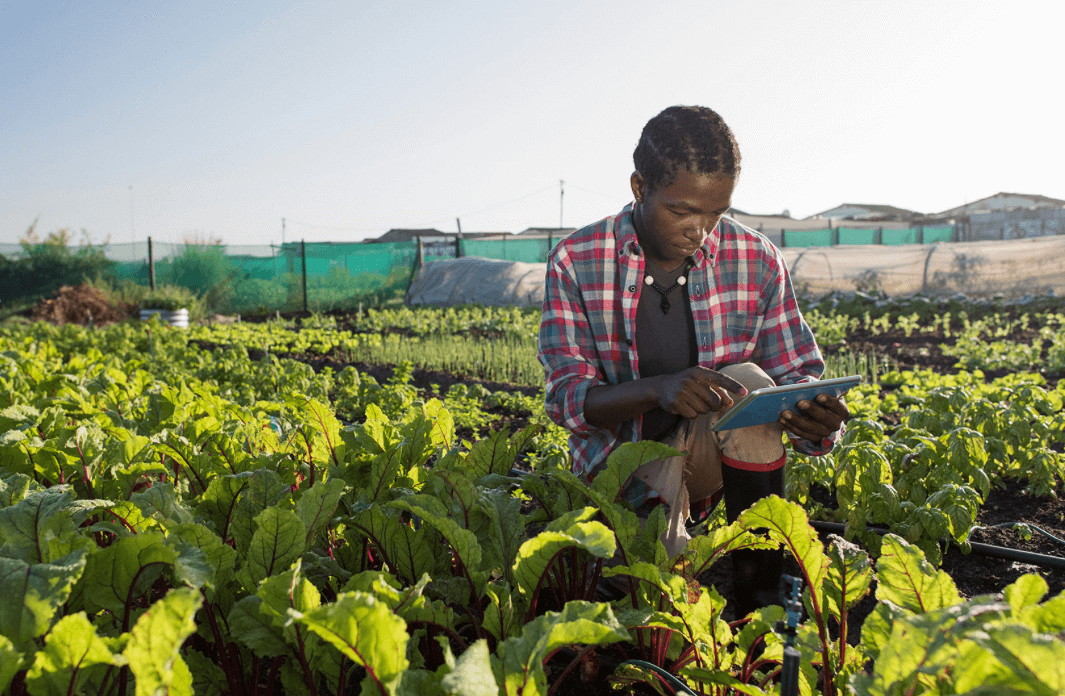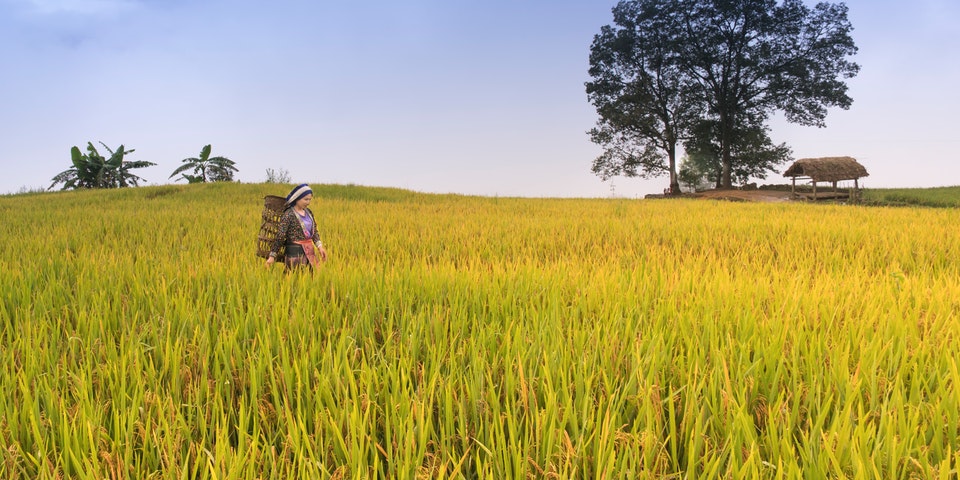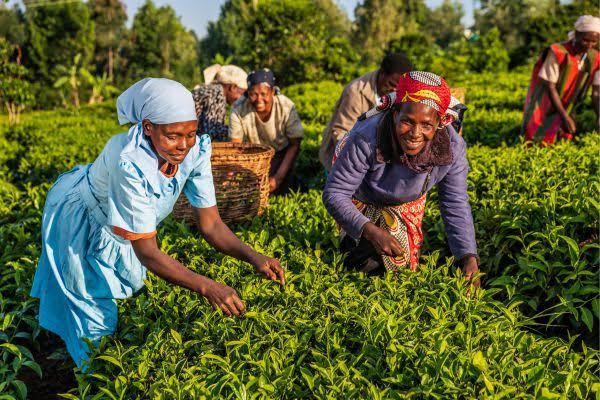A mobile application helps them examine the health of their crops and updates them about shifting weather patterns months in advance.
Victoria Nafula, a farmer in Busia County in Western Kenya, points her smartphone camera towards the green leaves on one of her cassava plants.
She watches the screen carefully as the camera scans the leaves, looking for diseases like cassava mosaic and cassava brown streak.
If not detected on time, these viral diseases can spread across an entire yield.
Finding nothing worrisome, Nafula walks down to her field of maize and inspects the crops with the same technique. She is looking for signs of fall armyworm, a serious threat to farming.
Until 2018, Nafula felt overwhelmed with treating different viruses affecting her six-acre farm. In 2018, she considered calling it quits and working on something else. The endless outbreak of diseases among her crops would leave her with a small yield.
“I was putting in a lot of work every day and reaping nothing. I was not able to put food on the table or earn any money,” Nafula tells TRT World.
Nafula is not alone. Cassava and maize crops are often plagued by different kinds of bacteria and viruses, affecting East Africa’s smallholder farmers for decades. Reports show that more than a third of sub-Saharan Africa’s potential cassava harvest is lost to pests and diseases and could result in annual economic losses of more than USD 1.25 billion.
In Africa, an estimated 70 million people are dependent on cassava as a primary food source.
The fall armyworm poses a major risk to the maize crop. It has been detected in nearly all countries in East Africa and left uncontrolled. The fall armyworm can reduce maize yields by 10-20 percent. As the most important food staple in the region and widely traded agricultural commodity, the impacts could be devastating. More than 300 million people on the continent depend on maize as a source of food and livelihood.
But now farmers across Tanzania and Kenya are employing artificial intelligence to protect East Africa’s most valuable crops.
Nuru, a phone app developed by PlantVillage - a department of researchers at Penn State University- uses artificial intelligence and machine learning to detect common diseases in cassava and maize.
The app is helping farmers to recognize the early onset of viruses, says Herry Kasunga, GIS specialist based in Tanzania. He explains that the symptoms of these diseases are often difficult for farmers to distinguish, which means they regularly go untreated.
Nafula says that Nuru has transformed her farming practices. Her six acres of land is now brimming with lush green leaves.
“When I started using the app, I began scouting my farm and found my cassava seeds were sick. Before that, I was not able to know this, and so the cassava disease would spread to the rest of the crops” she says, “Now if the app recognizes a disease, I uproot it. I have also started doing crop rotation.”
The app has made Nafula’s life easier.
“I have money in my pocket, and I can support my children to go to school, so life is comfortable now,” she says. "We are expecting a good harvest this year. People should come to Kenya – they can eat so much.”
So far, the app is being used by over 16,000 farmers in Kenya and 65 farmers in Tanzania.
Climate change and AI
PlantVillage AI engineer, Peter McCloskey, says that the app enables farmers to get a real-time diagnosis while they are in their field, and believes there is a growing trend in the fields of computer vision and remote sensing to develop software and mobile applications aimed at improving agriculture.
Winne Onyango, the Extension Research Coordinator for Nuru in Kenya says the app has become a lifeline for some farmers who were struggling to manage plant diseases:
"The type of disease we are talking about are viral and don’t have a cure [after they spread out]. In the most severe cases, farmers could lose everything in the field.”
The Nuru application is also able to inform the farmers of weather patterns months in advance.
Where climate change has resulted in unpredictable rains across East Africa, meteorological information for farmers is vital. Nafula says that the changing weather disrupts the seasons for planting and harvest, making it difficult to produce a decent yield.
Onyango says that the changing climate creates conditions for diseases and pests to flourish.
“Climate change has brought about warmer temperatures where pests can mature quick and multiply very fast,” she adds.
The Food and Agriculture Organization of the United Nations (FAO) recently said that climate change is increasing the risks of plant pests spreading, such as the fall armyworm. The FAO added that smallholder farmers are especially at risk.
A study by agricultural researchers in 2018 predicted that each degree of global warming will increase crop loss from insects by 10 to 25 percent.
PlantVillage AI engineer McCloskey adds that due to this looming threat, they are now working on developing tools to provide the knowledge and resources to the farmers who are most impacted by the changing climate.
But for now, farmers using Nuru are seeing a change.
Nafula says that her farming practices have become the talk of the village.
“I have a title now,” she says, a broad smile lighting up her face. “They call me the great farmer.”
Source - https://www.trtworld.com













